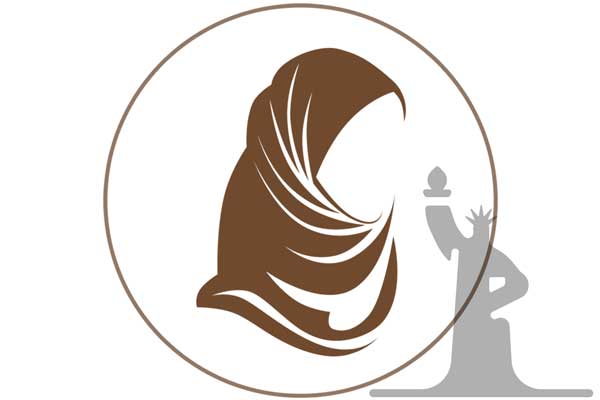Non-Muslims often use the word “oppressed” to describe Muslim women. It is such a ubiquitous term that you will find right-wing Islamophobes, left-wing social justice warriors, and average people applying it regularly, as if it is a de facto aspect of being a Muslim female. The people who use this terminology usually do not know anything about Islam, nor have they asked a single Muslim woman how she feels about her religion and her wardrobe.
The word “oppressed” carries a lot of weight. It implies that Muslim women are perpetual victims without agency or choice; that they are coerced or brainwashed into following their faith; that they are inherently different from the rest of women, who are assumed to be liberated; that there is some sinister power forcing them into submission; that Muslim women are prevented from living a full life.
If they bothered to ask Muslim women why they cover their hair and body, people would find that the vast majority do so willingly, as a wayof practicing their faith and obeying their Creator. Far from being imposed on women by nations or governments, the Islamic dress code is currently only mandated in three nations– Saudi Arabia, Afghanistan, and Iran. In the rest of the world, including Muslim-majority nations, the Islamic headscarf is optional or even illegal. In some countries like Tunisia and Turkey, where Islam is the predominant religion, women still had to fight for the right to wear a headscarf in public because it had been banned in all state institutions and government facilities. There are rules explicitly prohibiting Muslim women from wearing outward signs of their religious beliefs in France and Belgium, where Islam is the second most widely professed religion. So, for women who choose to dress in accordance with Islamic guidelines, it is a decision that they make freely and, in fact, courageously.
Modest or Revealing Attire: Which Is Liberating?
Interestingly, the term “oppressed” is almost always applied only to the Muslim women who choose to cover their hair. Those who do not are very rarely characterized as being oppressed. Even if they follow all the other tenets of Islam (praying, fasting, striving for a wholesome character, avoiding pork and alcohol, etc.) but leave their hair exposed, these women are much more likely to be considered “modern” or “liberated” because they look more like the non-Muslim women around them. But why has covering one’s body, and particularly one’s hair, been equated with oppression, while revealing them is considered liberating and progressive?
On the most basic level, many non-Muslims simply assume that modest Islamic attire is limiting – that it prevents women from living a full life because it is too bulky or restrictive. They doubt that Muslim women can do things like play sports, fulfill their job requirements, and function in the real world while wearing modest clothing. They are unaware of, or possibly ignore, thousands of examples of successful Muslim athletes, professionals, world leaders, and activists who pursue their interests and careers while modestly dressed. Instead, they point to extreme and isolated examples, like burqa-wearing women living under Taliban rule. Choosing an extreme example and ignoring the reality of millions of women is a very common tactic. This article on seeker.com, called “Life behind the burqa in Afghanistan” is typical of mainstream media:“Afghanistan was once seen as a fairly progressive country for women’s rights. According to Amnesty International, in the 1970’s, Afghan women not only went out in public without covering their heads, they also wore short skirts and high heels. They dressed quite similarly to women in western countries.”
Let’s look at what the author is doing in this paragraph. She is assuming that short skirts + high heels + western countries = progressive. And clearly, in her mind, “progressive” here means something good, liberal, and enlightened. This is the narrative that most people believe, and few bother to question it or think too deeply about it. It is rooted in ethnocentric ideas, ignorance, and arrogance.
Is it more liberating to wear short skirts and high heels? Most of us in the West have been programmed to think that. But why do the majority of women dress the way they do? Is it because they truly long to wear impractical shoes that force their feet at an unnatural angle and pull muscles and joints out of alignment? Is it because they love to spend their life chasing the elusive dream of a perfect, bikini- or miniskirt-worthy body that has no excess fat or signs of aging or imperfection?
When women’s clothing is designed to reveal their bodies, and society simultaneously promotes unrealistic ideals of female beauty, making a woman’s physical appearance her most salient characteristic, it is a perfect storm. Women will feel compelled to wear those fashionable styles – no matter how impractical– and will invest a great deal of time, money, and energy into molding and manipulating their body to fit the ideal. Preying on women’s insecurities and making them feel never quite attractive enough is a multi-billion-dollar global industry. Hair products, makeup, cosmetic surgery, diet pills, supplements, and weight loss programs are all part of the system that shackles women to the idea that their worth is tied to their outward appearance. If women didn’t care so much about how they look in revealing clothing, it would cause a monumental, earth-shattering financial upheaval.
Who Is Brainwashed?
Non-Muslims sometimes accuse modestly dressed Muslim women of being brainwashed. Perhaps they should consider whether they themselves are brainwashed by a sick global mentality that regularly exploits women’s bodies, focuses on their physique rather than their minds and souls, objectifies the female form, and makes women slaves to an unattainable version of female physical perfection.
Muslim women who choose to dress modestly believe they are following the commandment of God. Their motivation is to make their soul their first priority and to privatize their body, making it inaccessible to public scrutiny. For most Muslim women, therefore, modest clothing is indeed liberating.
Whether we realize it or not, we are all slaves to something. There is always at least one force that influences our actions and motivates our behavior. Most people’s primary goal is to be seen as fashionable, or beautiful, or popular, or wealthy, or admired. For many women, the desire to be considered attractive above all else has been programmed into them since childhood. But a person cannot be liberated until they willingly choose what they submit to. Muslim women choose to submit to God and His commandments. Whether or not those rules correspond to society’s current trends does not matter to the devout Muslim because man-made beliefs are inherently inferior to divine decree.
Muslim women are not trying to force non-Muslims to dress modestly or to think the way we do. We simply want the right to dress according to our own religious beliefs, and to do so safely and with dignity. Ignorant people will undoubtedly continue calling us “oppressed.” But whether society chooses to recognize our agency, competence, and free will is irrelevant because our true liberation lies in our indifference to the whims of the world.






